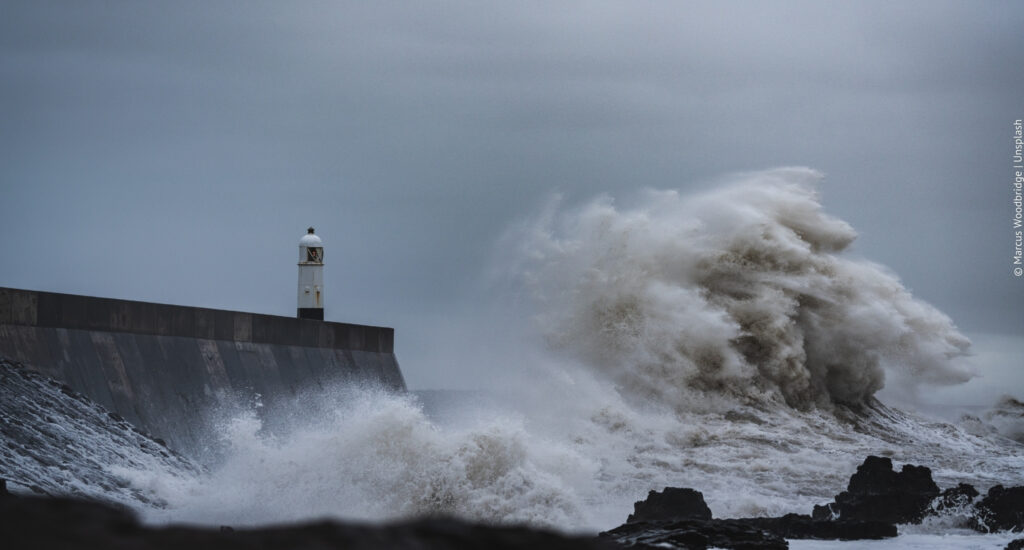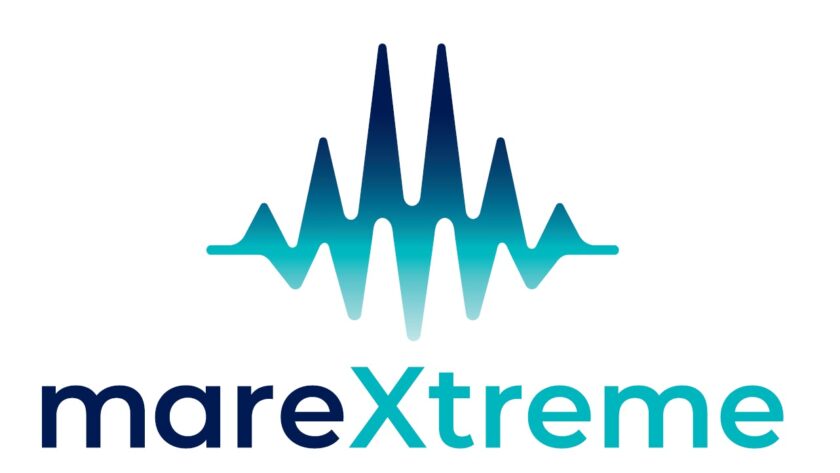
Marine extreme events and natural hazards
3rd DAM research mission

Nowhere is the world’s population growing faster than along the coasts. High population density, increasing urbanization and the associated intensive economic use of these regions are leading to increasing vulnerability. At the same time, man-made climate change is making extreme events in and around the sea more likely, threatening ecosystems and people.
Coastal areas and communities are therefore increasingly exposed to marine natural hazards, ranging from storm, flood and inundation scenarios to biologically and chemically induced events such as mass proliferation of potentially toxic organisms or pollution. Individual extreme events and natural hazards can be exacerbated when they occur simultaneously or in rapid succession and interact with each other, leading to cascading, far-reaching socio-economic impacts.
Research for improved forecasting and greater resilience
Extreme marine events and natural hazards are generally drivers or triggered processes that cannot be directly influenced. The development of adaptation measures and socially anchored, institutionalized strategies and measures for damage mitigation or precautionary mechanisms, such as awareness raising or early warning systems, is therefore particularly important in order to increase the resilience of society and coastal ecosystems.
The DAM research mission mareXtreme aims to develop efficient observation and early warning systems. Based on high-resolution, event-based, synoptic observational data and models, it will be possible to quantify the probability and intensity of occurrence, as well as the impacts and consequences of extreme marine events and natural hazards in different scenarios. At the same time, the scientists are investigating options for adaptation, prevention, protection and risk management in a participatory process.
Research Networks
The mareXtreme mission focuses on marine georisks, marine biological risks and physical-oceanographic risks, which are bundled in four joint projects:
- ElbeXtreme investigates the effects of physical-oceanographic extreme events on ecosystem services in the Elbe estuarine coastal system; coordination: Eric Achterberg, GEOMAR Helmholtz Centre for Ocean Research Kiel
- METAscales researches the effects of and strategies for adapting to future physical-oceanographic extreme scenarios on German coasts; coordination: Gabriel David, Technical University of Braunschweig
- MULTI-MAREX develops improved on-site action and forecasting options for multiple extreme geomarine events such as seaquakes and tsunamis in the Mediterranean; coordination: Heidrun Kopp, GEOMAR Helmholtz Centre for Ocean Research Kiel
- PrimePrevention researches ways of predicting biological threats to the sea in order to prevent socio-economic impacts; coordination: Katja Metfies, Alfred Wegener Institute, Helmholtz Centre for Polar and Marine Research
Project Partners
(alphabetical)
- Aachen University (RWTH)
- Albert Ludwig University of Freiburg
- Alfred Wegener Institute, Helmholtz Centre for Polar and Marine Research
- AquaEcology GmbH & Co. KG
- Bundesanstalt Technisches Hilfswerk (THW)
- Bund für Umwelt- und Naturschutz Deutschland, Federal state association Bremen e.V.
- Carl von Ossietzky University of Oldenburg
- Christian-Albrecht University of Kiel
- Federal Maritime and Hydrographic Agency of Germany(BSH)
- Hamburg University of Technology
- Helmholtz Centre for Ocean Research Kiel (GEOMAR)
- Helmholtz Centre for Environmental Research (UFZ)
- Helmholtz Centre hereon GmbH
- Helmholtz Centre Potsdam German Research Centre for Geosciences (GFZ)
- Jade University of Applied Sciences Wilhelmshaven/Oldenburg/Elsfleth
- Johann Heinrich von Thünen Institute for rural areas, agriculture, forests and fisheries
- Julius Maximilian University of Würzburg
- Leibniz Institute for Baltic Sea Research (IOW)
- Leibniz University Hannover
- Lower Saxon State Department for Waterway, Coastal and Nature Conservation
- Sea & Sun Technology GmbH (KMU)
- s.Pro sustainable projects GmbH (KMU)
- Technical University of Braunschweig
- United Nations University (UNU-EHS)
- University of Bremen
- University of Cologne
- University of Hamburg
- University of Rostock
- University of Stuttgart
Further Information at marextreme:
News: Third DAM research mission launched
Publication of the Bekanntmachung at Bundesanzeiger
Newsletter
Always up to date with the DAM newsletter. (German only)
